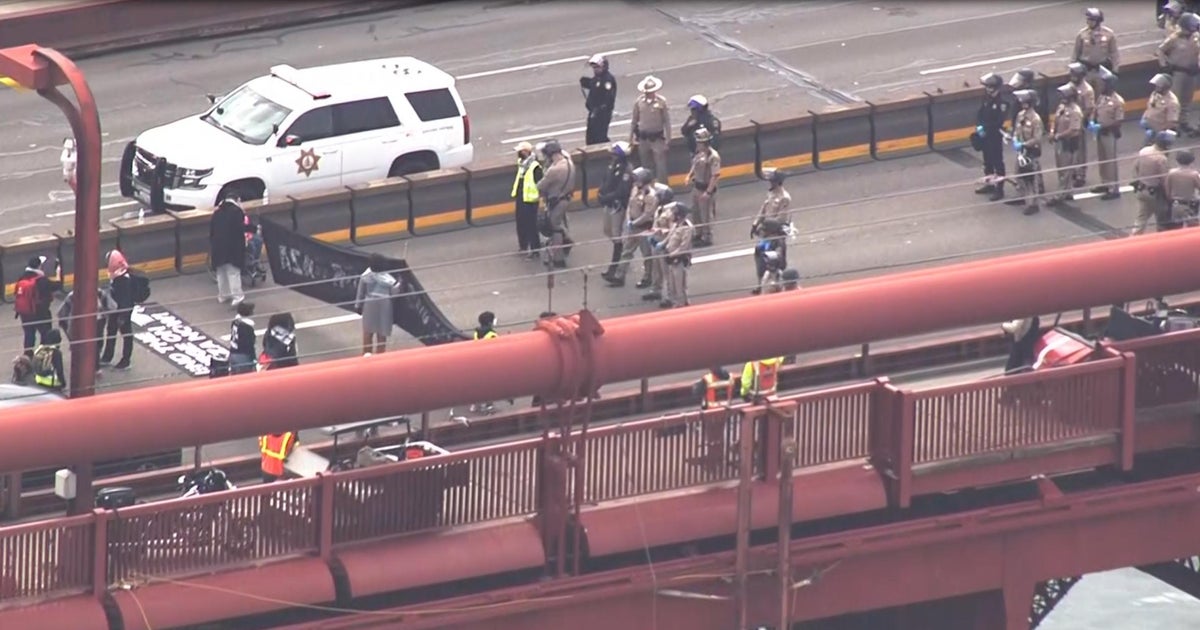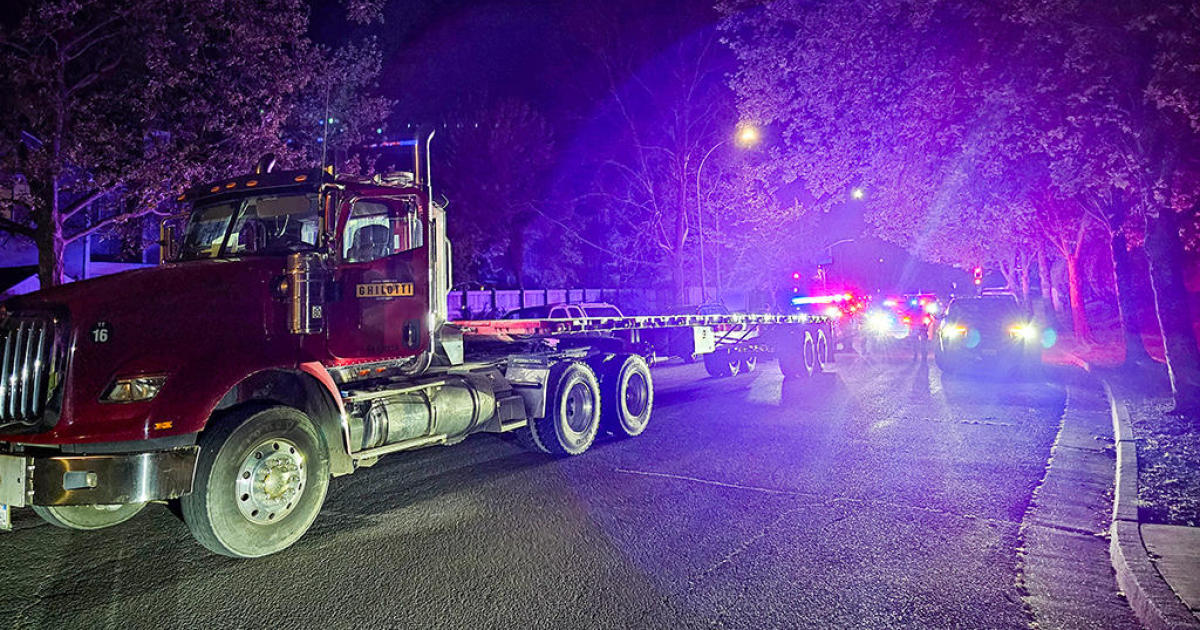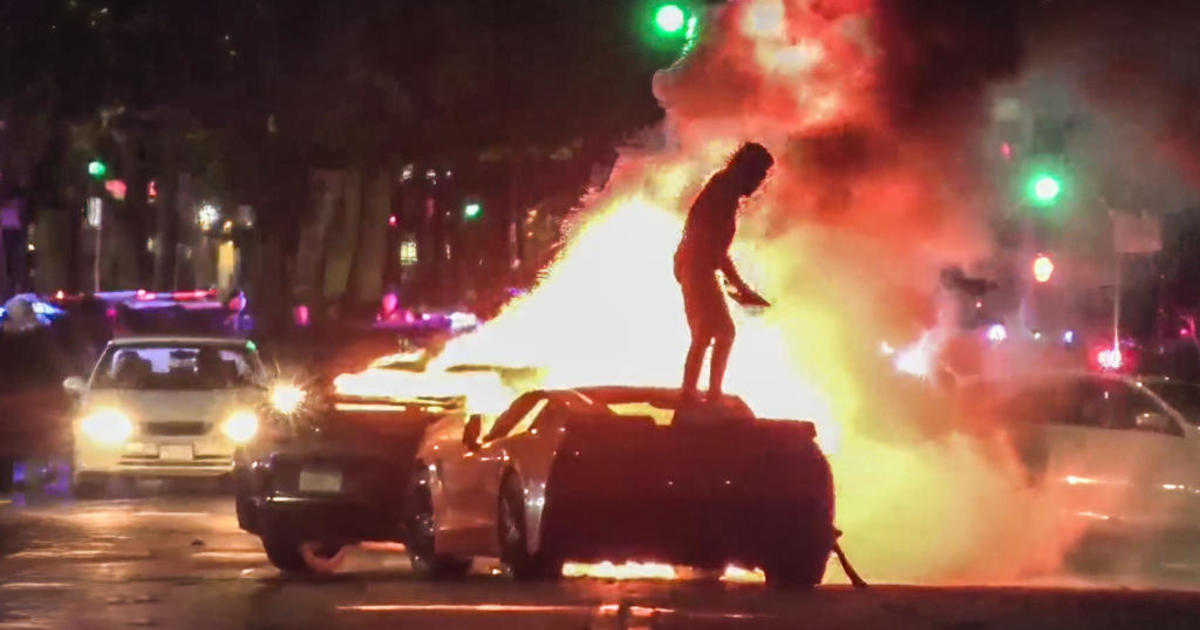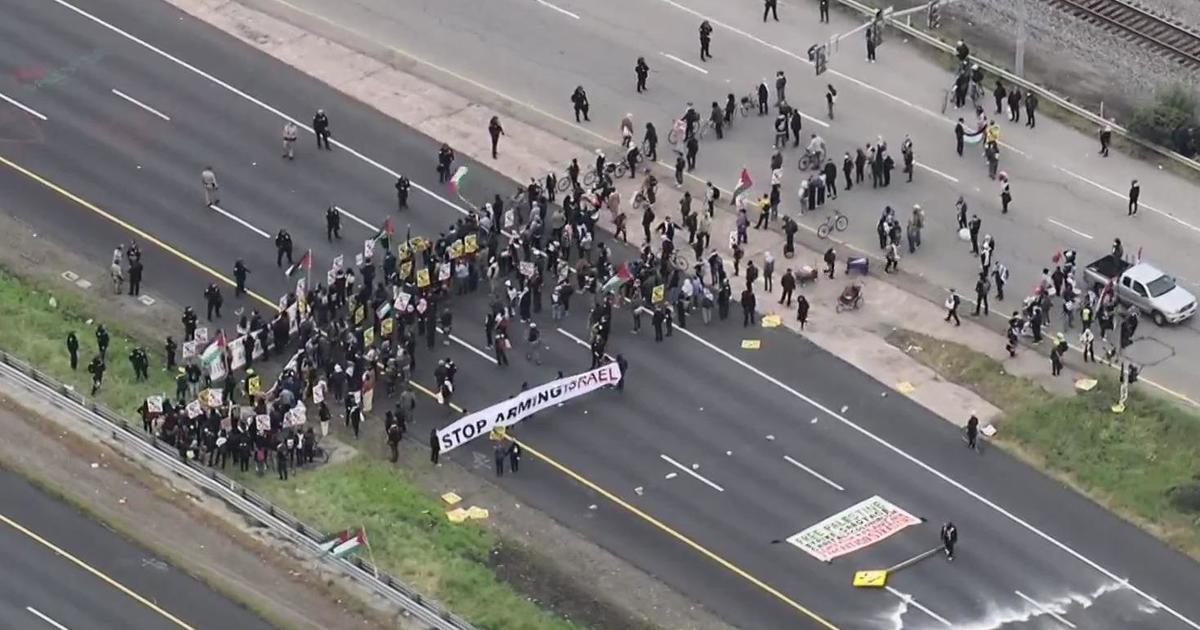Protesters, Journalists Suing Berkeley Over Police Response
BERKELEY (CBS SF) -- Eleven protesters and journalists who were injured during police brutality demonstrations in Berkeley late last year announced Monday morning that they will file a federal civil rights lawsuit for injuries suffered during the aggressive police response.
They allege that officers clubbed and shot tear gas at non-violent protest attendees, who in some cases were trying to stop vandalism and violence by other protesters and in two cases were photographing the event as journalists.
The Dec. 6 demonstrations were the first in Berkeley during a wave of protests throughout the Bay Area and the nation reacting to police killings of unarmed black men, particularly in New York and Missouri. The protests were some of the largest in Berkeley in decades.
Similar marches had already happened in Oakland and San Francisco, but Berkeley's drew nationwide attention when it erupted in smashed windows, fighting between protesters and police, and use of tear gas on large crowds.
The protesters are represented by the National Lawyers Guild, which provides free legal observers and representation for protests, along with veteran civil rights attorney Jim Chanin, who earlier this year accused Berkeley police of racial profiling in traffic stops and searches.
Rachel Lederman, president of the NLG's San Francisco Bay Area chapter, said Monday that people in her office were surprised when after protests in numerous Bay Area cities, "the Police Department about which we received the most complaints and most shocking reports was Berkeley."
Among the peaceful protesters injured during the demonstration was 55-year-old Moni Law, a mother, attorney and rent board counselor. Law said Monday that she joined the protest near the University of California campus and followed it to the police building at Martin Luther King Jr. Way and Addison Street.
"I stood, I marched, I sang, and it was a beautiful night," until the protesters were confronted by a line of police officers outside the department's headquarters, Law said.
She got in front of the crowd and tried to keep distance between them and the police, turning to face the crowd of demonstrators. But as she stood with her back to the police, one officer broke formation and clubbed her in the back with his baton, she said.
During the confrontation, another protester and plaintiff in the lawsuit, 62-year-old Joseph Cuff, was hit with a baton and knocked to the ground, according to the complaint.
freelance photographer on assignment with the San Francisco Chronicle, Sam Wolson, was pushed with a baton as he was walking along a police line. As he knelt to take a photo, an officer hit him the back of the head, knocking him to the ground.
A lengthy report on the demonstration by Berkeley police said the officers were on alert because they had seen several demonstrators put on masks as they approached the police building. They said demonstrators who were clubbed were warned to move and acknowledged that a few reporters were hit with batons during this time.
"Although reports of crowd members masking up had officers justifiably on alert, and violent protesters later demonstrated they were armed with projectiles and ready for conflict, the skirmish line may have exacerbated the situation because the crowd had been peaceful up to this point," police wrote in the report.
The demonstrators were then allowed to move north on Martin Luther King Jr. Way. When they reached University Avenue, some demonstrators smashed the windows of the Trader Joe's store there and threw merchandise into the street. Police said during that time, sandbags, pipes, bricks and sideview mirrors were hurled at the officers. When police used smoke grenades on the crowd, some demonstrators threw them back.
But the suing protesters claim police simply watched the destruction to the Trader Joe's and targeted people who were actively trying to keep the crowd peaceful, including 21-year-old UC Berkeley student Nisa Dang, who said she was struck with a baton in the back of her head and in her ribs.
Law, in pain and trying to walk home, found Dang crying and complaining she had just been clubbed, according to the compliant. As they were standing together, officers threw smoke grenades at their feet, Law said Monday.
The protests continued for hours. Later that night, a group of demonstrators tried to march onto Interstate Highway 80 near the University Avenue off-ramp.
Plaintiff Curtis Johnson, a 30-year-old Los Angeles resident, was diverted off the highway there and joined the demonstration nearby where, unprovoked, he was hit in the right knee by less-lethal munitions fired by Hayward police officers, according to the complaint. He was left unable to walk and in extreme pain.
Seminary student 30-year-old Cindy Pincus said Monday that she had to get staples in the back of her head after she was clubbed while stooping to help another protester at about 10 p.m., when a crowd ran from the area of Telegraph and Durant avenues, fleeing a cloud of tear gas.
The plaintiffs contend that eventually Berkeley police forced the protesters into Oakland, tear gassing them repeatedly until they walked to the border, despite some trying to disperse and go home. They were finally pushed into Oakland at about 1:30 a.m., according to the complaint.
According to police briefing materials provided by the plaintiffs' attorneys, officers were instructed to collect evidence such as projectiles thrown at police to be used as evidence in court and to provide to media. But Chanin pointed out that the department has yet to institute a body camera policy, so much of the police action was unrecorded by the department.
"Every rock and bottle was photographed but the police conduct was not," he said.
While much of the department's briefing material focuses on swiftly arresting violent agitators, one note instructs officers to "Get'um running! Stretch the crowd out so they are not a mass, but individuals."
The department's summary report posted online acknowledged that many officers were confused, radio communication was bogged down by too much traffic, insufficient efforts were made to communicate with organizers prior to the event and officers were deployed in such a way that may have provoked the crowd.
"The commanders and officers attempted to do their best to stem the violence and lawlessness that arose during the protests and were not fully satisfied with the outcome," the report stated.
The plaintiffs are seeking unspecified damages for pain and suffering, medical expenses, loss of work, damage to career and punitive damages.
City and police officials did not immediately respond to requests for comment.
© Copyright 2015 by CBS San Francisco and Bay City News Service. All rights reserved. This material may not be published, broadcast, rewritten or redistributed.



